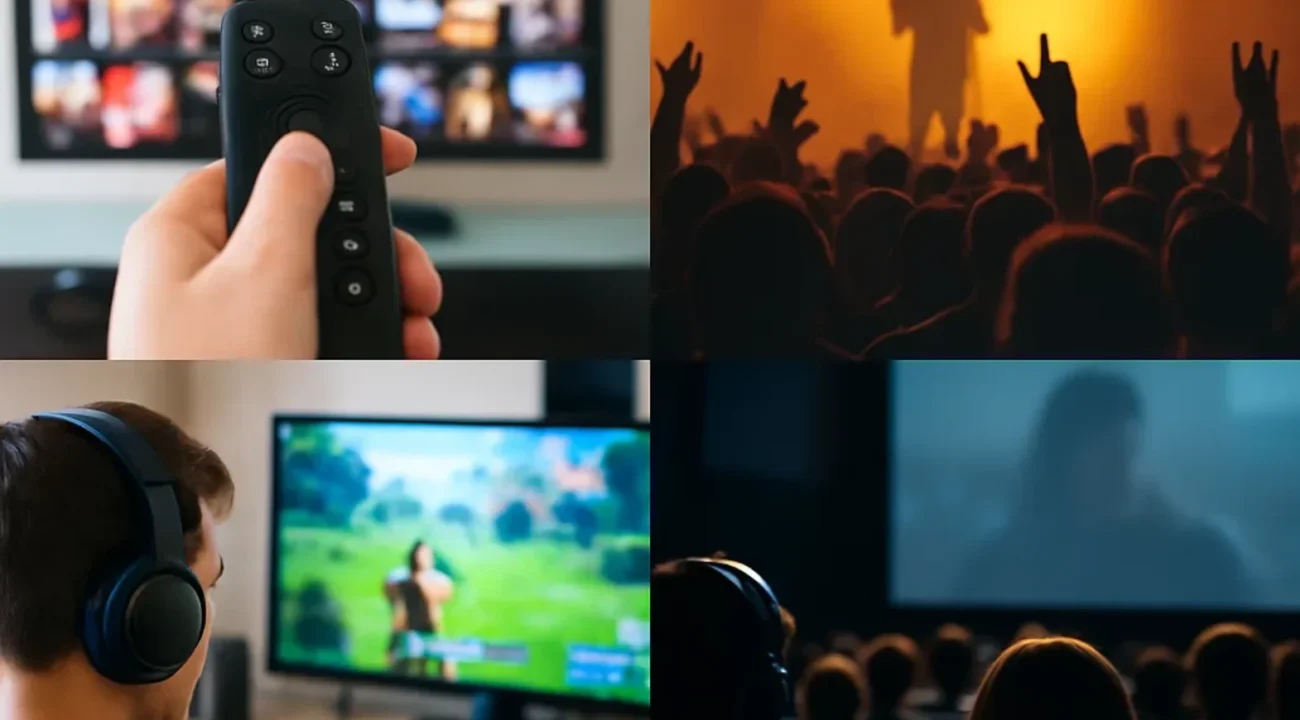Entertainment has always played a vital role in human civilization—from ancient theatrical performances and oral storytelling to modern cinema and virtual reality. It serves not just as a medium of amusement but also as a reflection of society, culture, and technology.
In the 21st century, the entertainment world has undergone a seismic transformation driven by digital innovation, shifting audience preferences, and the democratization of content creation. From Hollywood blockbusters to TikTok reels, the scope and style of entertainment are broader, faster, and more accessible than ever before.
The Digital Revolution: Streaming Takes the Lead
One of the most defining changes in the entertainment industry has been the rise of digital streaming platforms. Services like Netflix, Amazon Prime Video, Disney+, and HBO Max have revolutionized how people consume content. Gone are the days when families had to wait for a scheduled TV broadcast. Today, audiences demand and receive instant gratification—binge-watching entire seasons, pausing and resuming at will, and discovering content from across the globe.
Streaming services have also opened doors to international content, breaking down language and cultural barriers. Korean dramas, Spanish thrillers, and Indian epics now find enthusiastic audiences in the U.S., U.K., and beyond. Shows like Money Heist, Squid Game, and Sacred Games demonstrate that good storytelling transcends borders.
The Rise of Social Media Entertainment
The internet has not only changed the distribution of entertainment but also its creation. Platforms like YouTube, TikTok, and Instagram have turned everyday users into global entertainers. Influencers, comedians, gamers, dancers, and educators build careers without the backing of big production houses. What was once considered “user-generated content” has evolved into a billion-dollar industry.
Short-form video content, particularly on TikTok and Instagram Reels, has revolutionized the way entertainment is consumed. These bite-sized, often humorous or visually striking videos offer rapid bursts of joy, making them highly addictive. Algorithms curate feeds based on user behavior, keeping audiences endlessly engaged.
Cinema Isn’t Dead—It’s Evolving
Despite the streaming boom, cinema remains a cultural institution of significance. Blockbuster releases like Avengers: Endgame, Avatar: The Way of Water, and Barbie have drawn massive crowds back to theaters. The big screen remains unmatched in delivering immersive experiences, thanks to innovations like IMAX, 4DX, and Dolby Atmos.
Moreover, the return of in-person events post-pandemic has reignited interest in film festivals, live screenings, and premieres. Independent cinema is also thriving, as streaming platforms now buy and promote these films, offering creators new financial and creative opportunities.
Music in the Cloud Era
The music industry has seen a parallel evolution. Physical album sales have been replaced by digital downloads, which in turn have been surpassed by streaming services such as Spotify, Apple Music, and YouTube Music. Artists can now release music directly to fans, bypassing traditional record labels.
Social media has become a vital tool in music promotion. Viral trends on TikTok can skyrocket unknown artists to stardom overnight. Think of how Lil Nas X’s Old Town Road became a global hit after going viral. Similarly, live-streamed concerts and virtual performances became popular during the pandemic and continue to supplement live tours today.
Gaming: The New Entertainment Titan
Video games are no longer just a niche hobby—they are a dominant force in global entertainment. The gaming industry now rivals or surpasses the film and music industries in terms of revenue. Titles like Fortnite, Call of Duty, Minecraft, and The Legend of Zelda have become cultural phenomena.
Gaming isn’t just about playing anymore. Platforms like Twitch and YouTube Gaming have turned gameplay into watchable entertainment. eSports competitions draw millions of viewers and offer prize pools in the millions. Virtual reality (VR) and augmented reality (AR) are pushing gaming into new frontiers, offering immersive experiences that were once the stuff of science fiction just a decade ago.
Live Events, Festivals, and Theater Make a Comeback
After the pandemic-induced pause, live entertainment is making a roaring comeback. Concerts, theater performances, stand-up comedy shows, and music festivals are once again selling out arenas and auditoriums across the country. There’s a growing appreciation for the shared emotional experience that only live events can offer.
Broadway and West End productions continue to dazzle while international artists tour more extensively than ever. Events like Coachella, Glastonbury, Lollapalooza, and Tomorrowland are cultural touchpoints for Gen Z and millennials, blending music, art, fashion, and technology.
The Future: Virtual Worlds, AI, and Metaverse
As we look ahead, the future of entertainment seems poised to merge even more with technology. The metaverse—a concept of interconnected virtual worlds—is being explored by tech giants like Meta, Microsoft, and Google. Imagine attending a concert in a digital avatar, walking the red carpet at a film premiere in VR, or watching a movie on a virtual beach with friends from different continents.
AI-generated content is also beginning to enter the creative arena. Tools like ChatGPT and DALL·E allow creators to produce stories, images, and even music using artificial intelligence. While still evolving, this technology has the potential to significantly alter the landscape of scriptwriting, visual effects, and even performance.
FAQs: Entertainment in the Modern Age
Q1: Is traditional cinema dying because of streaming services?
A: Not necessarily. While streaming has changed how people consume content, cinema is evolving to provide more immersive, event-like experiences. Blockbusters continue to attract large audiences, while niche films find homes on streaming platforms, offering creators greater freedom.
Q2: How has social media influenced the entertainment industry?
A: Social media has democratized content creation and made it easier for individuals to become entertainers. It also enables real-time feedback, fan engagement, and viral trends that can significantly enhance visibility for music, films, or shows.
Q3: What are some emerging technologies in entertainment?
A: Virtual reality (VR), augmented reality (AR), artificial intelligence (AI), and the metaverse are transforming how people experience entertainment. AI is being used to write scripts and create music, while VR is offering immersive cinema and gaming experiences.
Q4: Why is gaming considered a form of mainstream entertainment now?
A: Gaming has evolved from a subculture to a global industry with billions in revenue. With the rise of eSports, live game streaming, and mobile gaming, it now competes directly with film and music for audience attention.
Q5: What is the role of influencers in modern entertainment?
A: Influencers are now considered key figures in shaping pop culture. Brands collaborate with them for marketing, and their opinions can drive music, fashion, and product trends. They also create content that reaches millions daily, often rivaling traditional media.
Final Thoughts
Entertainment today is an ecosystem of creativity, technology, and cultural exchange. It’s more inclusive, accessible, and participatory than ever before. Whether you’re a fan of films, music, games, live performances, or digital content, there’s something tailored for everyone. As technology continues to evolve, so too will our ways of laughing, crying, cheering, and connecting with stories. The future of entertainment isn’t just bright—it’s boundless.




